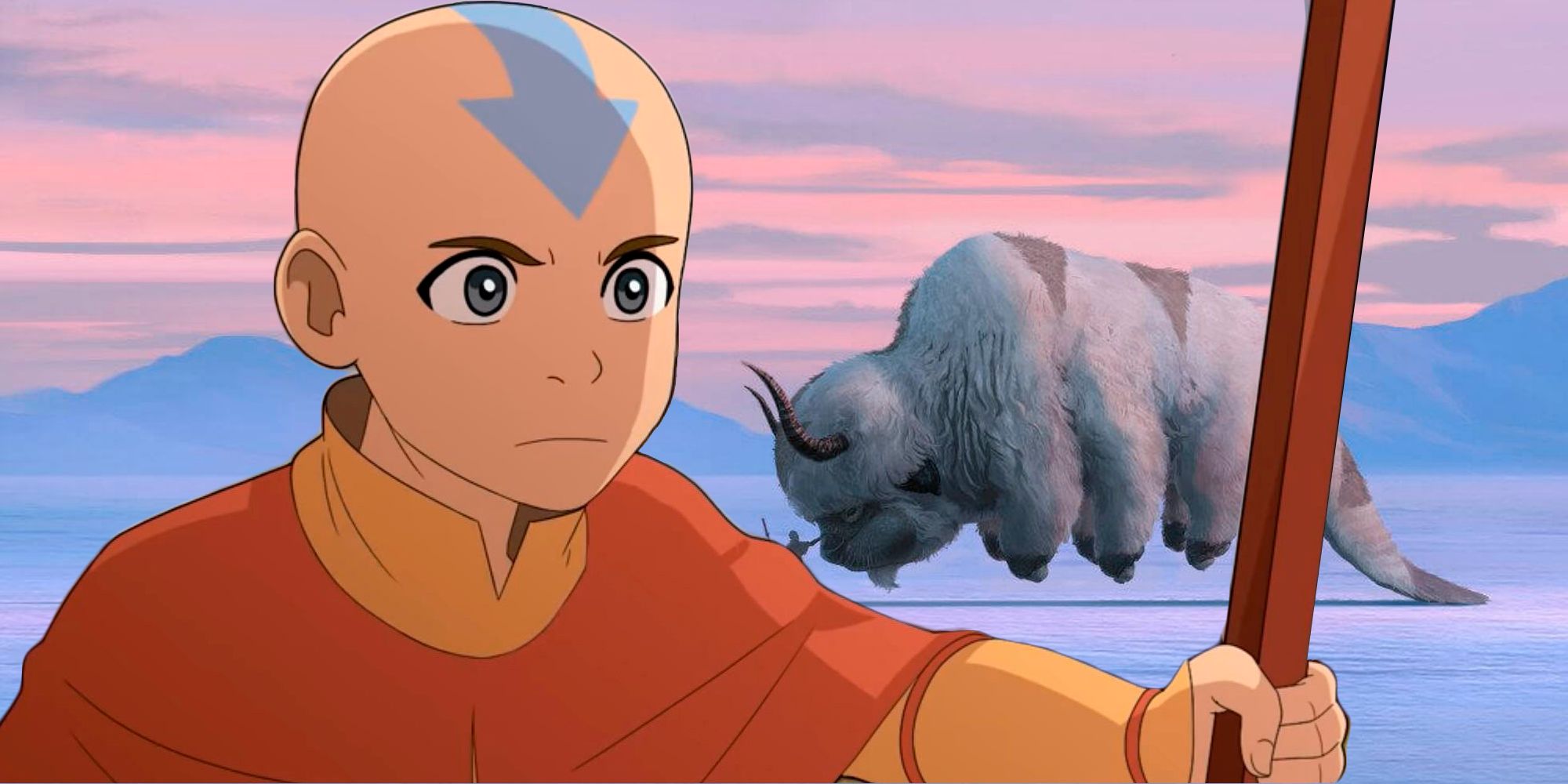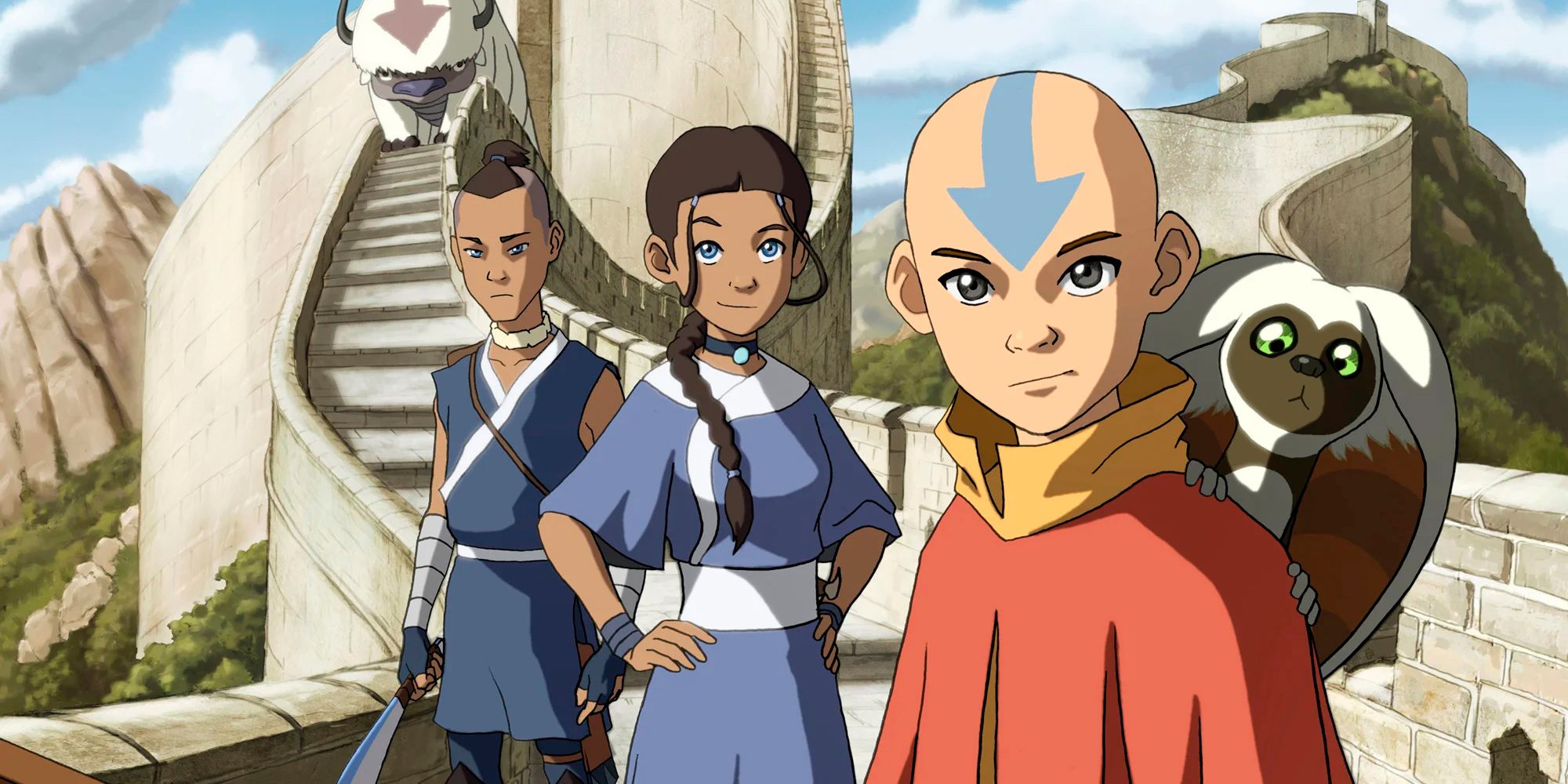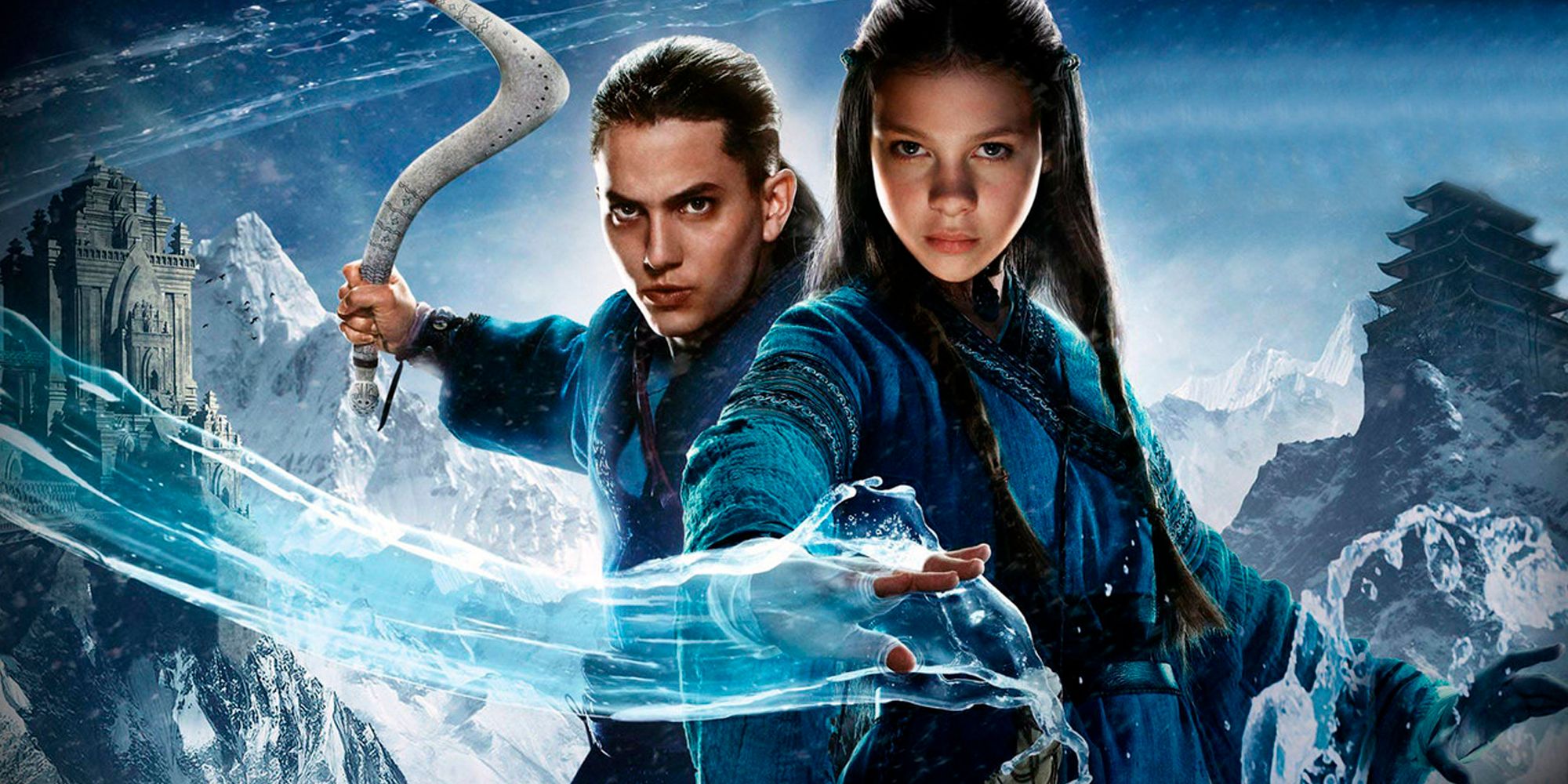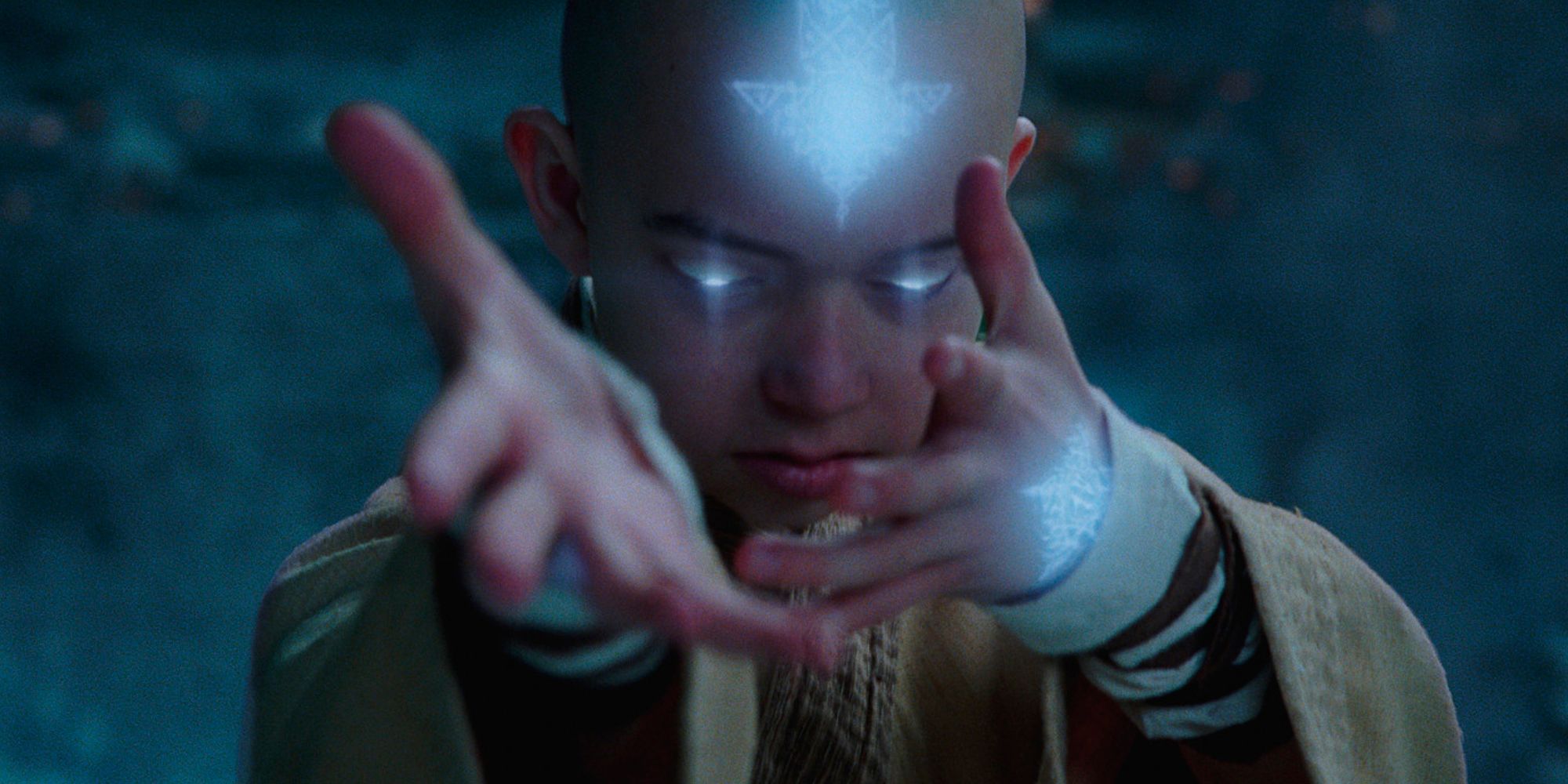
Recent news of creators Michael DiMartino and Bryan Konietzko exiting production could spell disaster for Netflix’s live-action adaptation of Avatar: The Last Airbender. DiMartino and Konietzko spearheaded the beloved animated series and later created its sequel The Legend of Korra. Their newly-announced exit echoes the production problems of the disastrous 2010’s movie, The Last Airbender, from director M. Night Shyamalan, which was panned both by critics and fans. It’s too early to tell for sure, but losing its original creators signals Netflix might be facing the same issues Shyamalan failed to overcome in the past.
Avatar: The Last Airbender is an Emmy award-winning animated TV series that ran for three seasons from 2005 to 2008. It told the story of Aang, the Avatar, a young boy destined to stop the Fire Nation and restore peace to his world by controlling four elemental powers. The show had high ratings during its first run, amassing 5.6 million viewers at one point. After its re-release on Netflix, the franchise recently gained popularity once again. In 2018, Netflix announced it was developing a live-action TV series based on the show, but the franchise’s history with bad adaptations raised concerns among fans.
A lot went wrong with Shyamalan’s The Last Airbender. The casting was heavily criticized by fans for whitewashing the original Asian characters, but the studio and Shyamalan mostly ignored the outrage. Although the first season had twenty episodes to tell its story, the studios’ plan was to condense a season-worth of content into a 90-minute movie. These decisions, combined with underwhelming special effects and lack of budget, meant The Last Airbender was a total failure creatively and at the box office. It almost sunk the entire franchise, even delaying the production of The Legend of Korra. Now, history seems to be repeating itself.

DiMartino posted an open letter on his personal website to explain why he and Konietzko left Netflix’s live-action series. In 2018, they were hired by Netflix as the executive producers and showrunners of the new adaptation with the promise that Netflix would respect and honor their creative vision. But it appears the partnership failed to take off. Once DiMartino and Konietzko realized they would not have the level of creative control they wanted, they decided it was best to part ways with Netflix. Konietzko echoed the sentiment on his Instagram, adding that Netflix’s handling of the project was overall a negative experience for them.
DiMartino goes on to say that this doesn’t mean fans won’t enjoy the new live-action series, and there’s still potential for it to be good. However, despite his assurances, it’s hard not to be concerned. Looking back at the franchise’s past, this situation feels similar to what happened during the production of The Last Airbender.
Related:

Back in 2008, DiMartino and Konietzko were also pushed out of 2010's movie production. Although they tried to help and be involved creatively, their input was ignored, and they had a falling out with the studio. Because the rights of Avatar: The Last Airbender belong to Nickelodeon, there was little they could do but watch as their beloved series turned into one of the worst movies released in the last 20 years. As time went on, members of the cast and crew have shared their regret at being involved in the project, with actor Dev Patel even apologizing to fans. In the end, nobody was happy. The studio suffered at the box office and Nickelodeon’s franchise failed to expand, while on the other side, fans were left unhappy and disappointed. It’s baffling that Netflix would want to risk repeating the same mistakes, but the recent news suggests otherwise.
Going by Konietzko’s Instagram post and reading between lines of DiMartino’s letter, it seems once again the creators faced an unsupportive environment and were displeased by the creative decisions made by Netflix. If the original creators are not happy, it suggests significant alterations are going to happen to the story or the characters, if not both. By default, adaptations have to make changes to their source material due to the difference between mediums. It’s an inevitable part of the process, and most professionals in the industry are aware of this. If they felt they needed leave, it could only be because the changes were too drastic and betrayed their vision for Avatar: The Last Airbender. A studio not listening to the creators usually signals a disregard for the source material and raises major red flags. Considering DiMartino’s and Konietzko’s involvement was a big reason why fans thought Netflix's show might be better than Shyamalan's movie, it’s understandable why their exit feels like a disaster in the making.

It’s important, however, to note that production issues and creative differences are quite common in the entertainment industry. It’s still possible Netflix’s version of Avatar: The Last Airbender could end up pleasing fans. Although DiMartino and Konietzko’s vision won’t be on the screen, new ideas could improve on the original and the reimagining of the source material might be a breath of fresh air, ending up surprising fans and critics. Not all adaptations that change the source material are terrible. In fact, some of them can be amazing and become classics, such as The Shining, Blade Runner, and The Iron Giant. The reality of the industry is that movies and TV shows are always in flux during production, and they have different obstacles and advantages compared to the animation process.
So while things may change in adapting the animated series to live-action, the crux of the story and the characters - Aang's strife to defeat the Fire Lord, Team Avatar's camaraderie, and the representation of every character - should all remain. It's not wrong to want to make changes to the source material in adaptations, but they must abide by the original series' framework. If it doesn't, then it's less of an adaptation and more of a reimagining - if not something else entirely. Keeping that in mind, Netflix's Avatar: The Last Airbender series can still be something of true value, and they've shown that they're capable of doing these things (look at The Witcher, for example). But to replace the original creators, the studio will need to hire someone who understands the material and shares audiences' love for it.
One advantage Netflix has that the live-action movie didn't is hindsight. Not only does Netflix have the entire series at their disposal to adapt and years of fan reactions to draw on but they must be aware of the failings of The Last Airbender movie too. It seems unlikely they would make the same mistakes. There is no doubt DiMartino and Konietzko created something incredible with Avatar: The Last Airbender. However, if Netflix respects the material and its beloved characters, they still might do right by fans.
from ScreenRant - Feed https://ift.tt/2FkGwob


0 Comments